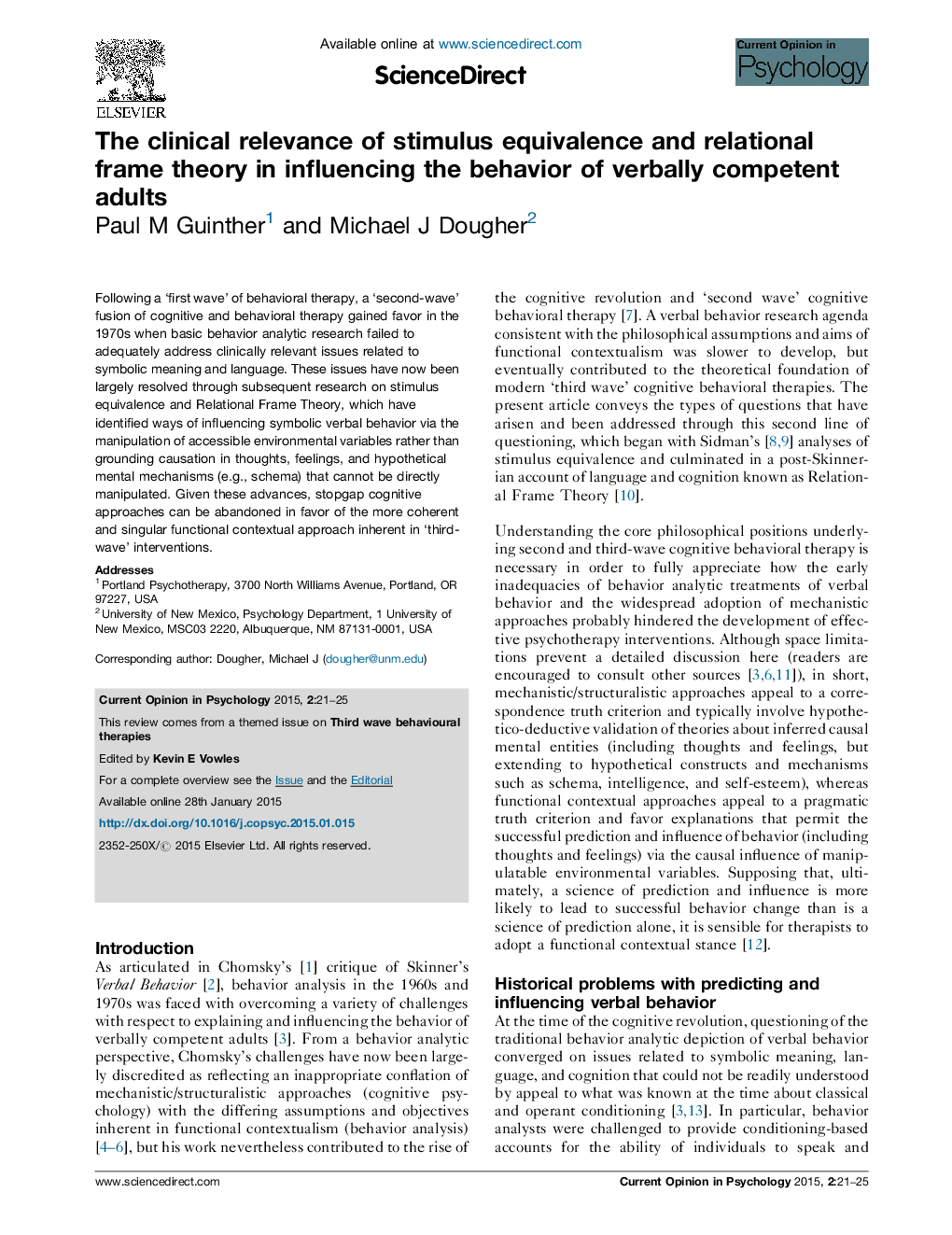| کد مقاله | کد نشریه | سال انتشار | مقاله انگلیسی | نسخه تمام متن |
|---|---|---|---|---|
| 879513 | 1471327 | 2015 | 5 صفحه PDF | دانلود رایگان |
• Early behavioral analyses failed to adequately account for complex symbolic verbal behavior.
• This shortcoming led to the adoption of second-wave cognitive behavioral therapy.
• Stimulus equivalence now accounts for the emergent functions of verbal stimuli.
• Relational Frame Theory is now a functional account of human language and cognition.
• These advances support the adoption of third-wave cognitive behavioral therapies.
Following a ‘first wave’ of behavioral therapy, a ‘second-wave’ fusion of cognitive and behavioral therapy gained favor in the 1970s when basic behavior analytic research failed to adequately address clinically relevant issues related to symbolic meaning and language. These issues have now been largely resolved through subsequent research on stimulus equivalence and Relational Frame Theory, which have identified ways of influencing symbolic verbal behavior via the manipulation of accessible environmental variables rather than grounding causation in thoughts, feelings, and hypothetical mental mechanisms (e.g., schema) that cannot be directly manipulated. Given these advances, stopgap cognitive approaches can be abandoned in favor of the more coherent and singular functional contextual approach inherent in ‘third-wave’ interventions.
Journal: Current Opinion in Psychology - Volume 2, April 2015, Pages 21–25
